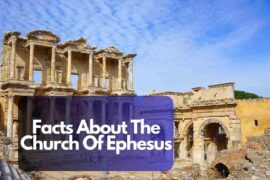The cost of building a church website depends on several factors, including domain and hosting, design and development, content creation, functionality and features, and maintenance and support. Church leaders and administrators should work with a professional web developer to determine the best approach to building a church website that meets their needs and budget.
In today’s digital age, it is essential for every organization, including churches, to have an online presence. A church website is an excellent platform for churches to communicate their beliefs, values, and activities to their congregation and the wider community. However, building a church website requires significant time and money. This article will explore the cost of building a church website and provide recommendations for each stage.
Contents
Definition of Church Website
A church website is an online platform that provides information about a church’s beliefs, services, events, and community outreach programs. It is a digital gateway for people to access information about the church and its activities.
Importance of a Church Website
A church website is essential in today’s digital age because it helps churches reach a wider audience beyond their physical location. It provides a platform for the church to share its message, beliefs, and values with the community. Moreover, it allows people to access information about the church at any time, from anywhere.
This article provides an overview of the factors determining the cost of building a church website. It will help church leaders and administrators understand the different aspects of website building and associated costs.
Cost To Build A Church Website: 5 Factors to Consider
1. Domain and Hosting
The domain and hosting are the first factors determining the cost of building a church website. The domain is the web address or URL people use to access the website. Hosting refers to the server space where the website is stored and accessible to users. The cost of domain and hosting varies depending on the hosting provider and the website’s size and complexity.
The first step in building a church website is to secure a domain name and web hosting. A domain name is the website’s address users type into their web browsers to access. Web hosting is the service that provides storage space and internet connectivity for the website.
(i) Factors that Affect the Cost:
The cost of domain and hosting services can vary widely depending on the provider and the features included in the package. Factors that affect the cost include the type of hosting (shared, VPS, dedicated), storage space, bandwidth, SSL certificate, email accounts, and domain name registration.
(ii) Recommendations for Domain and Hosting:
Choosing a reliable and reputable hosting provider with excellent customer support and uptime guarantees is recommended. Some popular hosting providers for churches include Bluehost, SiteGround, and DreamHost. When selecting a domain name, choose one that is easy to remember and relevant to the church’s name or mission
2. Design and Development
The design and development of a church website are crucial factors that determine its cost. The design includes the layout, color scheme, and graphics used on the website. Development involves the programming and coding required to build the website’s functionality. The design and development cost varies depending on the website’s complexity and the developer’s skills and experience.
Design and development refer to creating the website’s visual appearance and functionality. This includes choosing a website builder or platform, selecting a theme or template, customizing the layout, and adding features and functionality.
(i) Factors that Affect the Cost:
The cost of design and development can vary widely depending on the complexity of the website and the level of customization required. Factors that affect the price include the website builder or platform, the theme or template, custom design work, content management systems, e-commerce functionality, and third-party integrations.
(ii) Recommendations for Design and Development
It is recommended to choose a website builder or platform that is user-friendly and easy to maintain. Some popular options for churches include WordPress, Squarespace, and Wix. When selecting a theme or template, choose one that is visually appealing and matches the church’s branding. Consider hiring a professional web designer or developer to ensure a high-quality and customized website.
3. Content Creation
Content creation is another important factor that affects the cost of building a church website. The content includes text, images, videos, and audio used on the website. The cost of content creation depends on the type and quality of the content required. For instance, professional photography and videography services can add to the overall cost.
Content creation refers to creating written, visual, and multimedia content for the website. This includes creating pages for the church’s beliefs and mission, events and activities, sermons, blog posts, and multimedia content.
(I) Factors that Affect the Cost:
The cost of content creation can vary widely depending on the type and amount of content required. Factors that affect the price include the number of pages, the complexity of the content, the use of multimedia elements, and the need for professional copywriting or photography.
(ii) Recommendations for Content Creation :
Creating high-quality, engaging content that reflects the church’s mission and values is recommended. Consider making a content strategy that includes a mix of written, visual, and multimedia content. Use professional copywriting and photography to ensure a polished and professional look. Consider partnering with volunteers or church community members to create and curate content.
4. Functionality and Features
The functionality and features of a church website are critical in determining its cost. These include online giving, event registration, and podcast integration. The cost of functionality and features depends on the complexity of the website and the tools and plugins required to add these features.
Functionality and features refer to a church website’s various components and tools. This can include everything from the basic structure and design to more advanced features such as online donations, event calendars, and sermon archives.
(i) Factors that Affect the Cost
The cost of building a church website depends on various factors, including the size and complexity of the site, the type of features and functionality required, and the level of customization needed. An essential website with a few pages and minimal features may cost as little as $500-$1,000. However, a more complex site with advanced features and a customized design can cost $10,000.
(ii) Recommendations for Functionality and Features
When building a church website, it’s essential to prioritize the features and functionality that are most important to your congregation. Some recommended elements to consider include the following:
- Online donations: A secure and user-friendly platform for giving is essential for most churches.
- Event calendar: An online calendar that allows users to view and register for upcoming events easily can be a great asset.
- Sermon archive: A library of past sermons can help keep members engaged and provide a valuable resource for newcomers.
5. Maintenance and Support
Maintenance and support are the final factors determining the cost of building a church website. To remain functional and secure, websites require ongoing maintenance, updates, and backups. The cost of maintenance and support varies depending on the level of support required and the website’s complexity.
Maintenance and support refer to the ongoing work required to keep a church website up-to-date, secure, and running smoothly. This can include regular updates, security monitoring, and technical support.
(i) Factors that Affect the Cost of Maintenance
The cost of maintenance and support for a church website can vary greatly depending on the size and complexity of the site and the level of support required. Some web development companies offer monthly maintenance and support packages ranging from $50 to $200.
(ii) Recommendations for Maintenance and Support
When choosing a web development company to build your church website, it’s essential to inquire about their ongoing maintenance and support services. Some things to consider when selecting a provider include the following:
- Availability and responsiveness: Will the company be available to address any issues or concerns promptly?
- Updates and security: Does the company provide regular updates and security monitoring to ensure the site runs smoothly and securely?
- Cost: What is the ongoing maintenance and support price, and what services are included?
Building a church website can be a significant investment, but it can also be a valuable tool for connecting with your congregation and reaching out to new members. The cost of building a website depends on various factors, including the size and complexity of the site, the level of customization needed, and the type of features and functionality required. Ongoing maintenance and support are also essential considerations when building a church website.
Final Thoughts
While the cost of building a church website can seem daunting, it’s important to remember that this investment can pay off in the long run. A well-designed and functional website can help you communicate more effectively with your congregation and attract new members to your church.
If you’re considering building a church website, we encourage you to research and choose a reputable web development company to help you make a site that meets your needs and budget. Remember to prioritize the features and functionality that are most important to your congregation and consider ongoing maintenance and support as a critical factor in your decision-making process. One of the best companies we will recommend is SEAL WORLD TECHNOLOGIES








